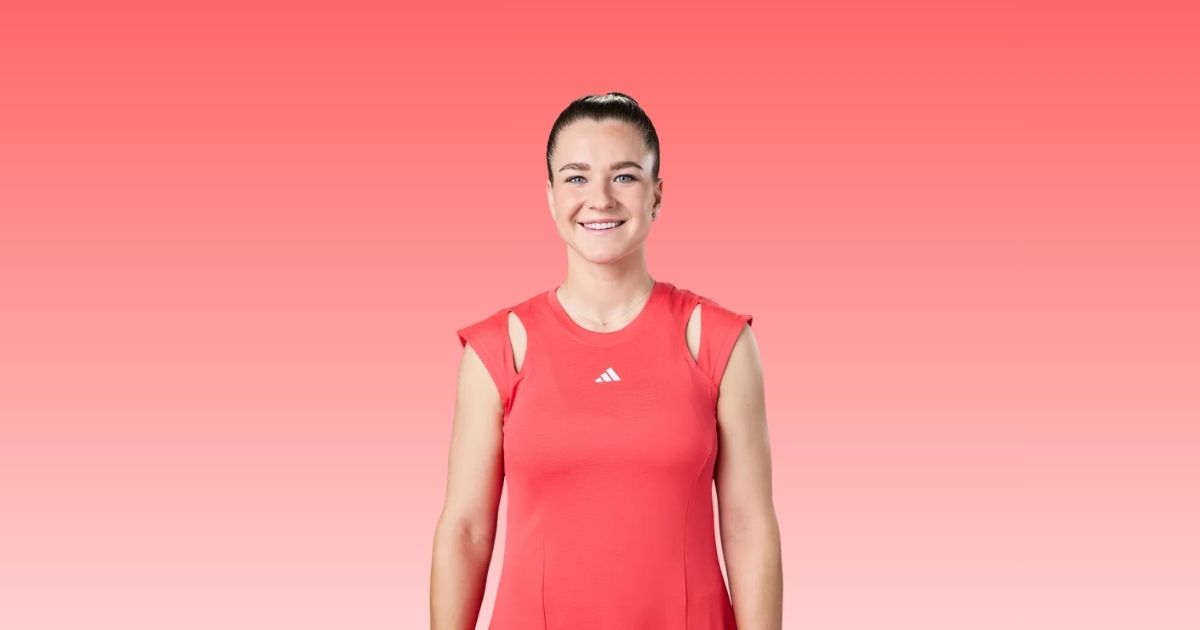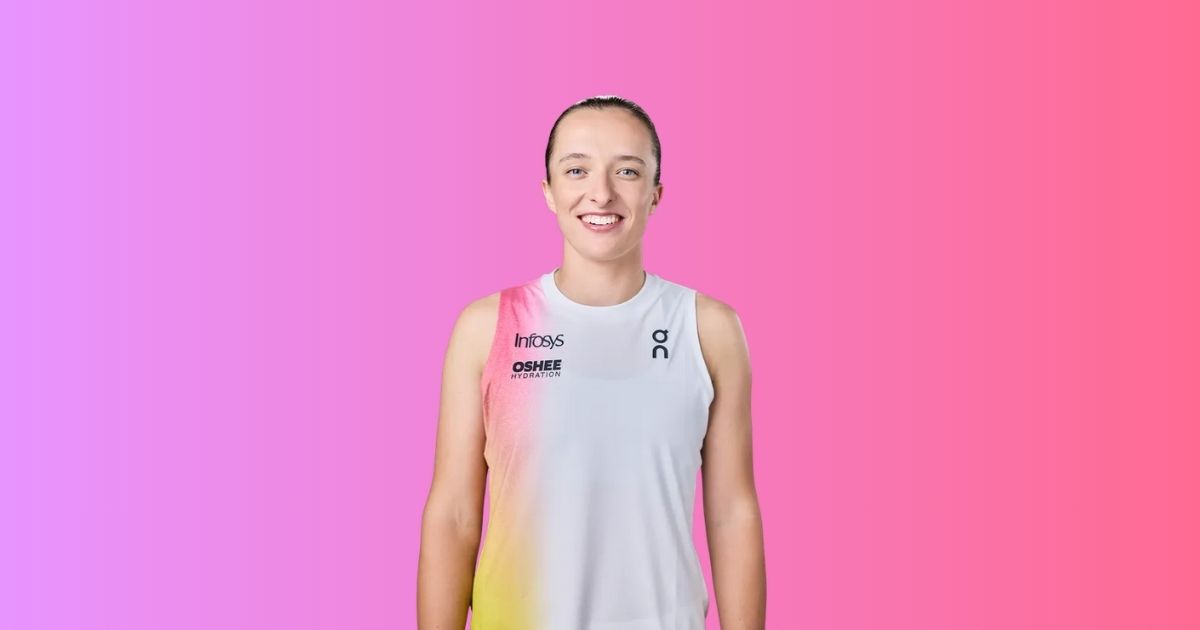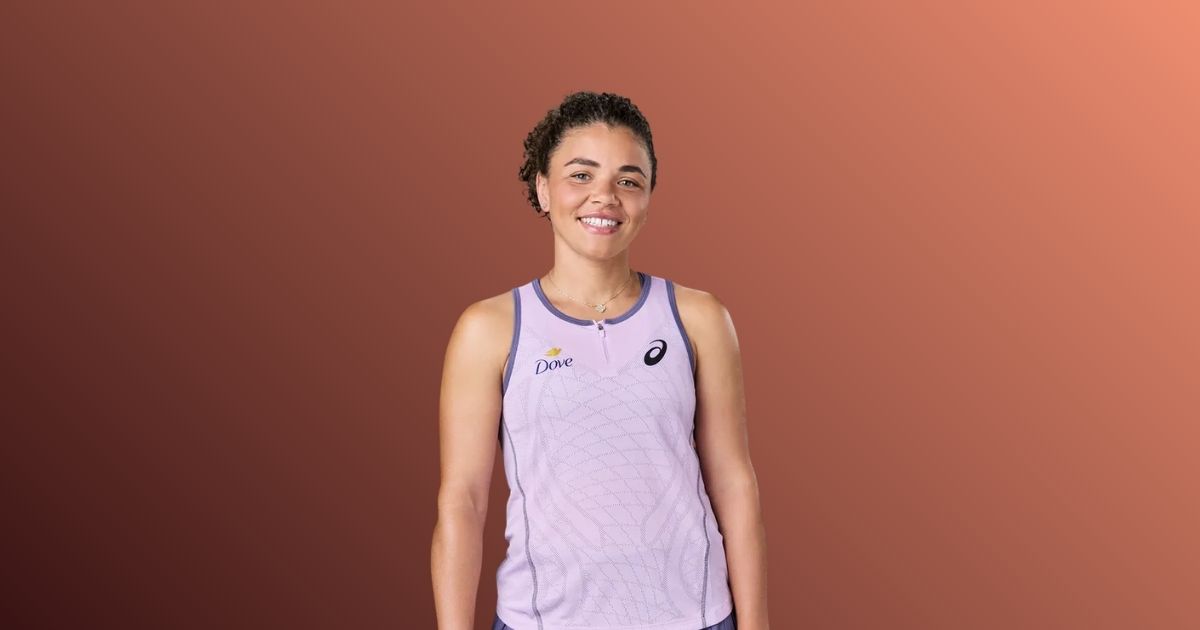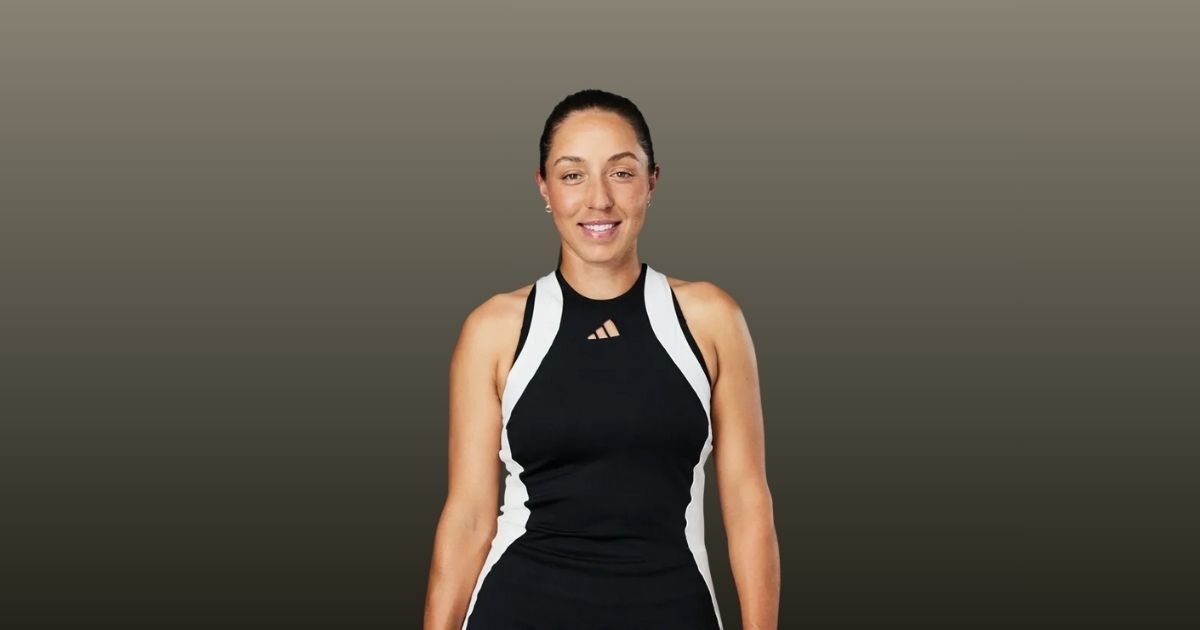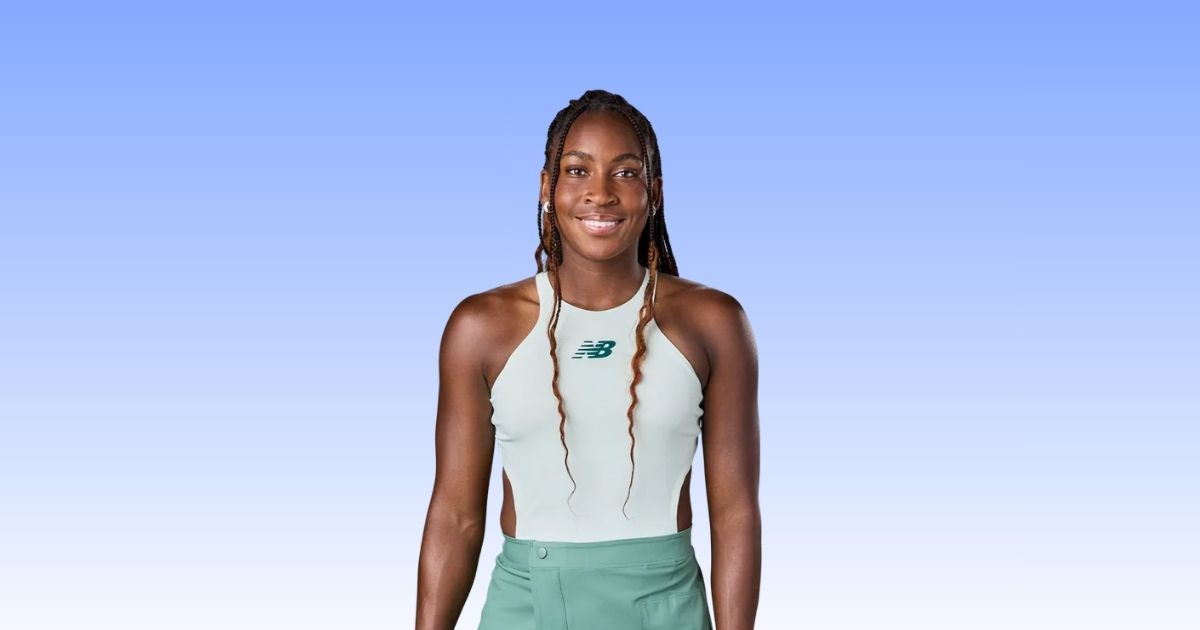Table of Contents
Karolina Muchova: A Rising Star of Czech Tennis
Karolina Muchova is an excellent Czech tennis player. She was an intelligent junior and qualified to the Grand Slam. This is an indication that some things can be achieved with the help of natural talent and endless motivation. The fact of how fast she had climbed up the tennis ladder demonstrates how robust is she, how intelligent is she in planning and how she can play against the most professional players among the world.
This in-depth Karolina Muchova Biography displays how she rose to the level of being one of the best players in the WTA Tour, having been initially a young player in Czech republic. Individuals who keep track of tennis will understand how her special approach to tennis, having some plan, and being a mentally strong person have contributed to overpowering the best in tennis and even achieving some objectives of an important job.
The article is useful since it demonstrates the manner in which Muchova secured employment, her playing style, as well as her life story. This is what made her such a great tennis player today and makes her the style which keeps the tennis players and sportsmen across the globe to be inspired.
Early Life and Background
Personal Information
- Born on August 21, 1996, in Olomouc, Czech Republic
- Height : 5’11” (180 cm)
- Playing style : Right-handed with a two-handed backhand
- Current residence : Czech Republic
- Muchova’s early development shares similarities with rising stars like Jasmine Paolini, who also built strong foundational skills during their junior years.
Family Foundation
- Parents recognized her athletic potential during childhood
- Family provided consistent support throughout junior development
- Siblings shared an interest in sports, creating a competitive household environment
- Strong Czech cultural values emphasized discipline and perseverance
- Financial sacrifices made by the family to support tennis development
Tennis Beginnings
- Started playing tennis at age 8 at local clubs in Olomou
- Early coaches identified natural coordination and competitive spirit
- Developed foundational strokes through systematic European coaching methods
- Participated in regional junior tournaments throughout the Czech Republic
- Demonstrated exceptional court awareness and strategic thinking from a young age
Junior Development Path
- Trained at various Czech tennis academies to develop comprehensive skills
- Competed extensively on European junior circuits
- Achieved notable junior rankings through consistent tournament performance
- Built a distinctive all-court playing style during teenage years
- Mental coaching became a priority during the crucial developmental phase
Career Overview and Playing Style
Playing Identity and Tactical Approach
- All-court player with exceptional versatility across different surfaces
- Combines aggressive baseline power with tactical variety
- Outstanding court coverage enables defensive-to-offensive transitions
- Strategic shot selection reflects high tennis intelligence
- Adaptable game plan adjustments during matches
- Muchova’s tactical versatility often draws comparisons to players like Sofia Kenin, who also rely on strategic intelligence and all-court adaptability.
Technical Analysis
Forehand Mechanics:
- Fluid swing generates both power and precise placement
- Excellent ability to hit winners from defensive positions
- Strong crosscourt and down-the-line options create tactical flexibility
- Topspin variation allows control during pressure situations
Backhand Excellence:
- The two-handed backhand provides exceptional stability and power
- Excellent handling of high-bouncing balls with proper technique
- Down-the-line backhand serves as the primary court-opening weapon
- Defensive capabilities maintain rally length when necessary
Serving Strategy:
- Focuses on intelligent placement rather than pure power
- First serve targets corners and body to establish favorable rally positions
- Second serve emphasizes consistency while maintaining sufficient pace
- Clutch serving performance during high-pressure moments
Return Game Mastery:
- Aggressive positioning inside the baseline for early ball contact
- Exceptional ability to neutralize powerful first serves
- Second serve returns frequently establish immediate offensive positions
- Strategic return positioning varies based on opponent serving patterns
Surface Adaptability
- Hard courts: Natural surface where aggressive baseline game thrives
- Clay courts: Developed patience and point construction through European training
- Grass courts: Modified return positioning and net approach for faster surfaces
Major Career Achievements
Tournament Victories and Milestones
- Multiple WTA titles across different tournament levels
- Consistent Top 20 WTA ranking achievements
- Grand Slam semifinal and final appearances
- Notable victories over former world number one players
- Her biggest career wins often came against top-tier opponents, including powerful players like Aryna Sabalenka, whose aggressive game style pushed Muchova to show her highest level.
Significant Victory Categories
Breakthrough Wins:
- Defeated multiple Top 10 players through tactical preparation and fearless execution
- Victory patterns typically feature superior return games and sustained match pressure
- Particularly effective against power players who struggle with her varied pace
- Consistent ability to raise performance level during crucial moments
Tournament Consistency:
- Regular appearances in the tournament’s second week
- The ability to win consecutive matches demonstrates physical and mental durability
- Strong qualifying performance when required shows professional dedication
Grand Slam Performance:
- Reached Grand Slam semifinals and finals through consistent high-level play
- Deep tournament runs across multiple major championships
- Proven ability to handle the pressure of major tournament environments
- Memorable matches against elite players on the biggest stages
Career-Defining Moments
- 2019 WTA breakthrough with first significant tournament victories
- 2021 Wimbledon quarterfinal run established grass court credentials
- The 2023 French Open final appearance demonstrated clay court mastery
- The US Open semifinal showing proved hard-court excellence
Breakthrough Moments
Career-Changing Victories
First Professional Titles:
- Early WTA victories came through week-long consistency rather than single exceptional performances
- Demonstrated ability to handle pressure during decisive matches against quality opponents
- Tournament wins provided a confidence foundation for sustained career success
Major Tournament Runs:
- Deep runs at Grand Slam events proved the capability against consecutive elite opponents
- Showed tactical adaptability by defeating players with contrasting styles during successful weeks
- Mental resilience during pressure moments became a signature characteristic
Ranking Milestones:
- Entry into the Top 50 represented validation of professional tennis career choice
- Each ranking improvement resulted from sustained tournament success rather than isolated victories
- Maintained ranking positions demonstrated long-term consistency rather than short-term success
Key Learning Experiences
Setback Management:
- Early career defeats provided valuable lessons in handling disappointment and tactical adjustments
- Injury periods are used for mental and technical development
- Close losses against elite players built confidence for future encounters
Strategic Evolution:
- Coaching changes helped refine the tactical approach and maximize natural strengths
- Tournament scheduling became more strategic as ranking improved and entry opportunities increased
- Physical conditioning programs adapted to support increasing match load
Personal Life and Interests
Cultural Background and Values
- Czech Heritage: Strong connection to Czech tennis traditions and national pride
- Family Relationships: Close family ties remain central to personal stability and career motivation
- Community Connection: Maintains strong ties to tennis development in hometown region
Interests Beyond Tennis
Lifestyle and Hobbies:
- Enjoys outdoor activities that maintain a connection with nature
- Reading provides mental stimulation during travel periods
- Music appreciation helps with relaxation and mental preparation
- Art and cultural interests maintain a connection to the Czech heritage
Professional Development:
- Language skills facilitate international travel and media interactions
- Media training assists with press obligations and sponsor relationships
- Business awareness for career planning and post-tennis preparation
Public Presence and Representation
- Authentic social media presence balancing professional and personal content
- Positive representation of Czech tennis and European athletics
- Fan engagement while maintaining appropriate privacy boundaries
- Professional approach to business and sponsorship relationships
Playing Philosophy and Mentality
Core Competitive Beliefs
Match Strategy Principles:
- Point-by-point focus regardless of match situation or score
- Aggressive mindset balanced with intelligent shot selection
- In-match tactical adjustments based on opponent responses and conditions
- Pressure situations are viewed as opportunities rather than obstacles
Mental Approach Framework:
- Thorough preparation eliminates anxiety through comprehensive opponent analysis and tactical planning
- Process focus rather than outcome obsession during competition
- Resilience through acceptance of tennis’s inherently unpredictable nature
- Continuous learning philosophy treats every match as an educational opportunity
Training Philosophy
Physical Preparation:
- Fitness programs designed to enhance natural abilities rather than copy other players
- Recovery protocols enable sustained high-level training and competition
- Injury prevention through proper movement mechanics and strength development
- Flexibility training supports technical execution under physical stress
Technical Development:
- Continuous refinement of existing strengths rather than major mechanical overhauls
- Video analysis identifies patterns and improvement opportunities
- Practice sessions replicate match conditions and pressure situations
- Tactical variety prevents opponents from comfortable game planning
Competitive Mindset
Pre-Match Preparation:
- Detailed scouting reports inform tactical decisions
- Mental visualization of successful shot execution and point patterns
- Physical warmup routines establish consistent preparation patterns
- Emotional regulation techniques maintain optimal arousal levels
In-Match Adaptations:
- Real-time assessment of tactical approaches that succeed and fail
- Flexibility to modify game plan based on opponent adjustments
- Energy management for sustained pearformance throughout matches
- Between-point routines maintain focus and emotional control
FAQ’s About Karolina Muchova’s Biography
Q). Who is Karolina Muchova?
Karolina Muchova is a professional Czech tennis player known for her intelligent all-court playing style, mental strength, and tactical adaptability against top WTA opponents.
Q). When and where was Karolina Muchova born?
She was born on August 21, 1996, in Olomouc, Czech Republic.
Q). How tall is Karolina Muchova?
Karolina Muchova stands at 5 feet 11 inches (180 cm) tall.
Q). When did Karolina Muchova start playing tennis?
She began playing tennis at the age of 8 at local clubs in her hometown, Olomouc.
Q). What is Karolina Muchova’s playing style?
She is a right-handed player with a two-handed backhand, recognized for her versatile all-court game, combining power, precision, and creativity.
Q). What are Karolina Muchova’s major career highlights?
Muchova has reached Grand Slam semifinals and finals, won multiple WTA titles, and defeated former world No. 1 players during her career.
Q). When did Karolina Muchova achieve her breakthrough in professional tennis?
Her breakthrough came in 2019, when she achieved significant WTA victories and established herself among the sport’s rising stars.
Q). Which Grand Slam final did Karolina Muchova reach?
She reached the 2023 French Open final, a milestone that showcased her mastery on clay courts.
Q). What are Karolina Muchova’s best Grand Slam performances?
She has made deep runs in the French Open (final), Wimbledon (quarterfinals 2021), and US Open (semifinals).
Q). On which surface does Karolina Muchova perform best?
She plays well across all surfaces, but her natural strengths show most on hard and clay courts, where she combines pace with strategic shot-making.
Q). What are her key strengths as a competitor?
Her mental toughness, tactical intelligence, and ability to adapt mid-match are key strengths that separate her from many opponents.
Q). What are Karolina Muchova’s hobbies outside tennis?
She enjoys reading, music, outdoor activities, and art, all of which help her maintain balance during her travel-heavy tennis career.
Q). What languages does Karolina Muchova speak?
Besides Czech, she speaks English and has developed strong communication skills for global media and sponsorship engagements.
Short Summary On Karolina Muchova
The biography of Karolina Muchova serves as an illustration of that technical versatility skilled with tactical intelligence may establish long-term achievement in professional tennis. The success that she gradually advanced on the Czech junior level to Grand Slam finalist, shows how rewarding an intense preparation, flexible thinking, and unfatigued commitment to continuous improvement can be.
Her narration is repeated when she has innovative challenges and opportunities in professional tennis. The years of intensive training coupled with her distinctive playing pattern and her aggressive attitude offers her great opportunities towards further winning over the best of world.
This attitude of Muchova can teach a lot to tennis fans and future players regarding how to utilize the innate skills to the fullest, being tactically flexible, and how to treat every match with due preparation and strategic considerations.

Saurabh is a passionate tennis content writer and lifelong fan of the game. Whether it’s Grand Slam showdowns or under-the-radar rising stars, Saurabh brings the court to life with sharp analysis, breaking news, and deep-dive features. When they aren’t covering matches, you can find them practicing their topspin forehand or debating who is the GOAT over coffee. Do you enjoy tennis? Then you are in the right place.
